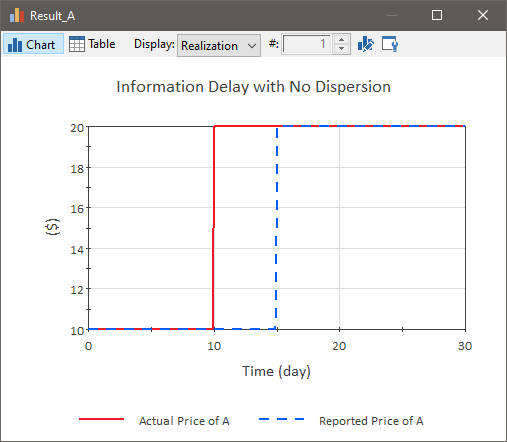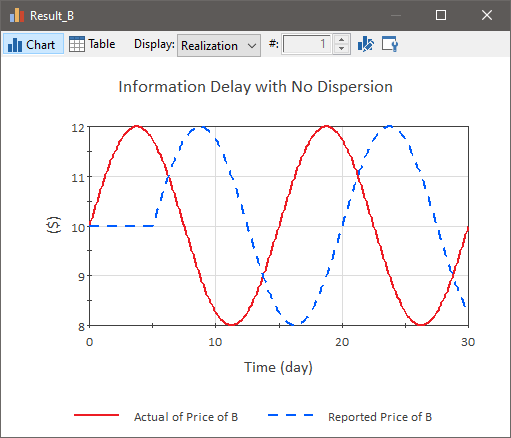The simplest use of an Information Delay element is to represent the delay of a non-dispersed signal. To simulate such a system, the Dispersion must be set to “None”. In this case, the output at any time t is simply the input lagged by the Delay Time:
Output(t) = Input(t -Delay Time)
An example of such a delay is any process where a variable is instantaneously measured (e.g., the inventory in a warehouse) but not reported or received by a manager or decision-maker until after a Delay Time. In the example shown below, the variable changes as a step, but there is a 5 day delay in reporting the value:

In the somewhat more interesting example shown below, the variable varies continuously (as a sine curve with a period of 15 days), and there is a 5 day delay in reporting the value. The Initial Value of the output of the Delay is set to 10:

- Browser View of an Information Delay Element
- Information Delay Elements
- Information Delays with Time-Variable Delay Times
- Mathematics of Information Delays
- Modeling Information Delays with Dispersion
- Modeling Information Delays without Dispersion
- Simulating Forecasts Using Information Delays
- Specifying Initial Values for Information Delays
- Specifying the Inputs to an Information Delay